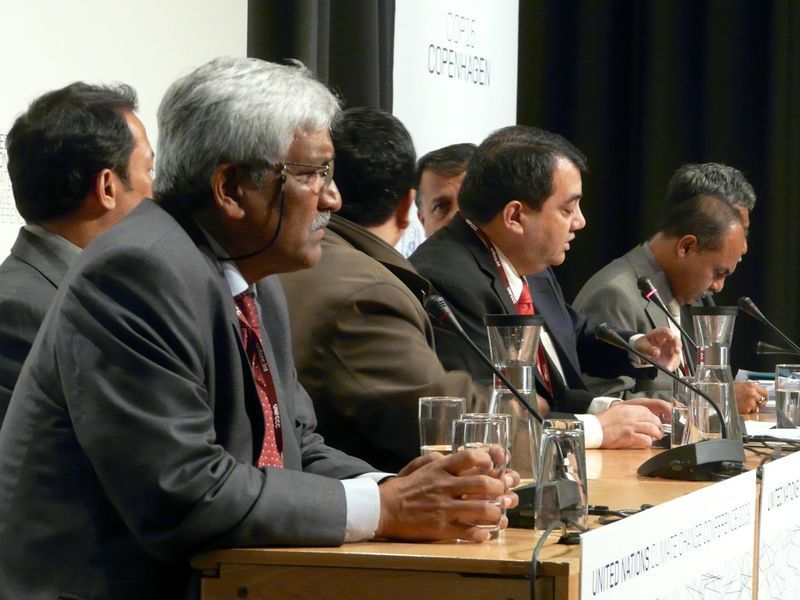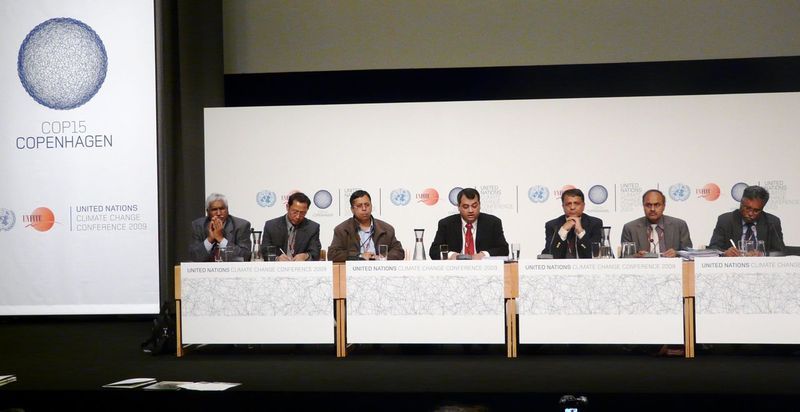As the U.N. Framework Convention on Climate Change began today, a group of leading Bangladeshi members of parliament and internationally renowned climate change experts held a press conference in Copenhagen's Bella Center to raise awareness of their country's vulnerability to global warming, and its readiness to put adaptation funding to immediate use. Delegation leader and member of Parliament Saber Hossain Chowdhury described how rising waters are forcing millions of Bangladeshis to flee their lands and crowd the slums of Dhaka, characterizing climate change as a profound justice and human rights issue.
He went on to describe how the Bangladeshi government had designated $100 million for climate change adaptation -- not nearly enough to address the problem, but a significant expenditure for one of the world's poorest countries. The U.N. has recently set a target of $10 billion a year for 2010 to 2012 for funding from the richest countries to the least development countries to help get adaptation programs rolling. Chowdhury noted that Bangladesh already has "a blueprint for adaptation" that includes river dredging, building barriers, and saline-resistant rice seeds, and therefore is ready, willing, and able to put such funding to immediate use.
In a private interview, he indicated that Parliament was aware of the Shidhulai floating school project that is the subject of our film-in-progress, "Easy Like Water," and that a Parliamentary team has plans to visit the project site in early 2010 to assess its place in the larger adaptation puzzle of Bangladesh.
When asked during the press conference whether Bangladesh "had a plan B" in case there is no international consensus on such funding, Chowdhury responded, "There is no 'Plan B,' because there is no 'Planet B.' We have only one Earth, and we need to find a way to continue to live on it." He went on to indicate that the longer the countries most responsible for the greenhouse gas emissions that are causing global warming avoid the issue, the worse the problem will get, and the higher the cost will be.
The panel also included climatologist Dr. Atiq Rahman, who, as a member of the Intergovernmental Panel on Climate Change, shared the Nobel Peace Prize in 2007. In the past, Dr. Atiq has offered his own take on "carbon trading," famously saying "those (nations) that had produced, say, 100 tons of carbon will have to take in a Bangladeshi family instead."
This story was reported for the Pulitzer Center on Crisis Reporting as part of the Copenhagen News Collaborative, a cooperative project of several independent news organizations. Check out the feed here from Mother Jones.



